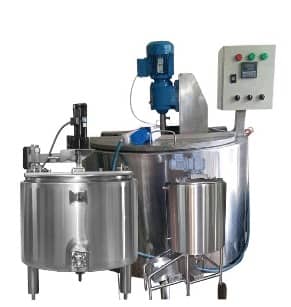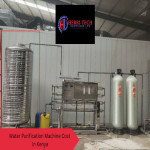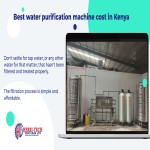WHAT IS A MILK PASTEURIZER?
Introduction
Milk is a staple in the diets of people worldwide, cherished for its nutritional richness and versatility. However, before it reaches our tables, it undergoes a crucial process known as pasteurization. In this article, we will delve into the world of milk pasteurizers, exploring their purpose, functionality, and the benefits they bring to the dairy industry and consumers alike.
Understanding milk Pasteurizers

A milk pasteurizer is a specialized equipment used in the dairy industry to heat raw milk to a specific temperature and hold it at that temperature for a predetermined period of time. The process of pasteurization helps to eliminate or reduce harmful bacteria, pathogens, and other microorganisms present in raw milk, making it safe for consumption.
The Pasteurization Process

Pasteurization involves heating the milk to a temperature between 145 to 161 degrees Fahrenheit (63 to 72 degrees Celsius) and holding it at that temperature for a minimum of 30 minutes. This effectively kills or deactivates harmful microorganisms while preserving the nutritional value and flavor of the milk.
Milk pasteurizers typically consist of a heating chamber or vat where the milk is heated using either indirect heating methods, such as steam, or direct heating methods, such as hot water or electricity. The temperature and holding time are carefully monitored and controlled to ensure effective pasteurization while avoiding any overheating that could lead to undesirable changes in the milk's quality.
After the pasteurization process is complete, the milk is rapidly cooled to a safe storage temperature, usually around 40 degrees Fahrenheit (4 degrees Celsius). The pasteurized milk can then be packaged and distributed for consumption or further processing into various dairy products.
Milk pasteurizers play a crucial role in ensuring the safety and quality of milk products, reducing the risk of foodborne illnesses associated with consuming raw or inadequately processed milk. They are an essential piece of equipment in the dairy industry, enabling dairy producers to provide consumers with safe and nutritious milk.
BENEFITS OF MILK PASTEURIZATION
1. Prolonged shelf life

Keeping milk fresh long enough for it to make it to market and then on to consumers’ pantries is key. Some bacteria and other microorganisms can cause milk to deteriorate faster than it takes for the end consumer to purchase them. Therefore, pasteurization is vital to making your food products viable.
2. Preventing Disease

Organisms that cause illness are found in many food products. Removing them to ensure your milk is safe for general consumption is critical.There’s always a chance your milk could cause illness if it’s not pasteurized—regardless of the sterility of your processing plant.
3. Nutritional Preservation

Milk is known for its valuable nutrients, including proteins, vitamins, and minerals. Pasteurizers aim to minimize nutrient loss during the heating process, preserving the milk's nutritional value and ensuring consumers can benefit from its healthful properties.
4. Quick and safe sanitation

There are many ways to sanitize milk, but few are as quick or safe as pasteurization. With pasteurization, the temperature of the product is raised enough to destroy any microorganisms that may be present.
Other methods may involve chemical treatments or radiation and may not be the safest to use. Pasteurization is also faster than most methods that rely on filtration or other means.
5. Consistent milk quality

By eliminating volatile contaminants, the milk becomes more stable. Therefore, the quality of your milk is more consistent. A more consistent product means that your customers know what to expect from your production lines.
6. Potential improvements in flavor and scent

In some cases, the pasteurization process can improve the smell and taste of your milk. your milk may have bacteria that produce unpleasant odors over time but do not necessarily impact it’s quality. Removing those bacteria can create a more consistently pleasant experience for the consumer.
7. Regulatory compliance

To comply to numerous laws are in place that require certain food products to be pasteurized or otherwise treated to remove bacteria and viruses. Which may attract penalty for not complying or risk imprisonment.
Conclusion
Milk pasteurizers are indispensable in the dairy industry, ensuring the safety, quality, and availability of milk to consumers worldwide. By effectively eliminating harmful bacteria and preserving the milk's nutritional attributes, pasteurization plays a vital role in maintaining the integrity of this beloved and essential beverage.
Next time you pour yourself a glass of milk or enjoy a dairy product, take a moment to appreciate the dedication and precision behind the pasteurization process. Milk pasteurizers safeguard our well-being, allowing us to relish the wholesome goodness of milk with peace of mind.
Embrace the power of safe milk and join the league of dairy producers who prioritize quality and consumer satisfaction!





